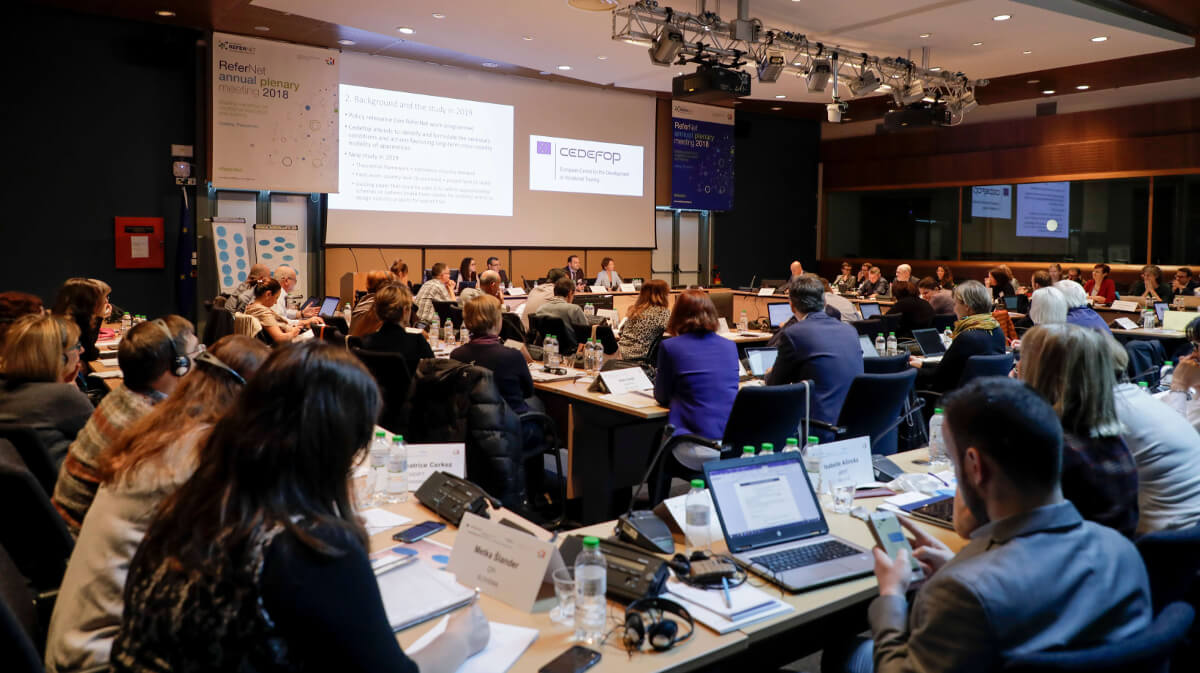The 16th annual plenary meeting of ReferNet was held from 21 to 23 November in Thessaloniki. More than 80 participants attended the meeting, including national representatives and ReferNet’s partners.
The objectives were to inform partners and national representatives on developments in vocational education and training (VET) policies, reflect on the validation process, prepare a platform for sharing knowledge, deepen the cooperation between partners and Cedefop’s experts and prepare the 2019 work plan.
This year’s meeting had a day dedicated solely to national representatives. Representatives had the opportunity to discuss aspects related to their role, highlight the challenges and address the ideal context to develop their activity.
The future of skills and VET
Partners were informed on the latest developments in VET policies and the EU plans to establish Centres of Vocational Excellence (CoVE) and platforms that will allow setting bridges and share common interesses with other countries.
Digitalisation and automation are introducing significant transformations in the labour market and, consequently, VET needs to monitor and update the profiles of competences required for these transformations. Cedefop has been working on collecting information on the implications and consequences of automation and digitalisation, analysing what countries are developing to prepare their future workforces for labour market transformations.
To understand how skills systems are measured, and in what ways they can become more effective, Cedefop has created the European Skills Index (ESI). The objective is to measure and monitor the performance of EU competence systems, identify areas that can be improved and enable transnational analysis.
Network’s visibility
Cedefop informed partners about the use of the products produced by ReferNet, showing that they are used both in a European and international context. The documents contributed to the work of the European Semester and to develop the Education and Training Monitor. The most cited reports are short descriptions, VET in Europe, thematic perspectives and policy reporting.
The visibility survey of 2014-17 addressed the trends and practices of partners regarding their online presence. Although there is a growing participation in social networks, websites are the most used dissemination platform. Cedefop also highlighted the work of Germany, Italy, Spain and Portugal in the redesign of their national websites.
Partners also had the opportunity to present contributions on VET as a platform for sharing knowledge and on long-term international mobility.
The road ahead
As the value of investing in user-friendly tools is fundamental, Cedefop will continue to work on a way to provide relevant information on VET policies online.
Over the next year, the VET in Europe Online Tool will be launched. This will be an online version of the content displayed on hard copies.


